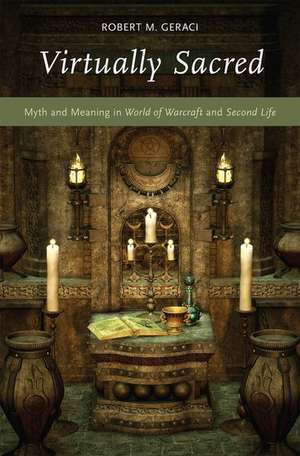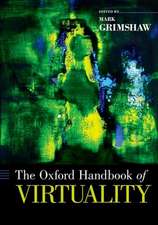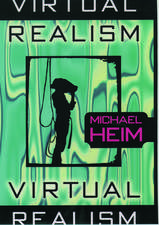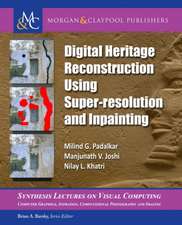Virtually Sacred: Myth and Meaning in World of Warcraft and Second Life
Autor Robert M. Geracien Limba Engleză Hardback – 24 iul 2014
Preț: 337.18 lei
Preț vechi: 388.76 lei
-13% Nou
Puncte Express: 506
Preț estimativ în valută:
64.52€ • 68.99$ • 53.79£
64.52€ • 68.99$ • 53.79£
Carte tipărită la comandă
Livrare economică 07-12 aprilie
Preluare comenzi: 021 569.72.76
Specificații
ISBN-13: 9780199344697
ISBN-10: 0199344698
Pagini: 368
Ilustrații: 21 illus.
Dimensiuni: 160 x 236 x 33 mm
Greutate: 0.6 kg
Editura: Oxford University Press
Colecția OUP USA
Locul publicării:New York, United States
ISBN-10: 0199344698
Pagini: 368
Ilustrații: 21 illus.
Dimensiuni: 160 x 236 x 33 mm
Greutate: 0.6 kg
Editura: Oxford University Press
Colecția OUP USA
Locul publicării:New York, United States
Recenzii
In Virtually Sacred, Robert Geraci argues that 'virtual worlds are now rearranging or replacing religious practice', competing with traditional religions and their stories in a new spiritual marketplace. This provocative book represents a major empirical and theoretical step forward for the study of digital religion, engaging seriously and thoughtfully with the history of religions, virtual anthropology and actor-network theory, and will make an essential contribution to the next generation of debates in the field of religion, media, and culture.
This lucid but sophisticated book demonstrates that online virtual realities like World of Warcraft and Second Life allow the sacred to flourish in a secular society, encourage players to experiment with ethical issues, sustain community in an age when tribe is an obsolete concept, and offer not merely escape but transcendence.
Robert Geracis astute argument that video gamers discover enchantment, redemption, and transcendence in gaming deserves widespread attention. Virtually Sacred is one of the most original treatments of gaming and participation in virtual worlds I have ever read. The elegant, understated prose provides the perfect foil for Geracis unexpected, provocative foray into grasping the contours of religiosity in gaming and virtual worlds.
This lucid but sophisticated book demonstrates that online virtual realities like World of Warcraft and Second Life allow the sacred to flourish in a secular society, encourage players to experiment with ethical issues, sustain community in an age when tribe is an obsolete concept, and offer not merely escape but transcendence.
Robert Geracis astute argument that video gamers discover enchantment, redemption, and transcendence in gaming deserves widespread attention. Virtually Sacred is one of the most original treatments of gaming and participation in virtual worlds I have ever read. The elegant, understated prose provides the perfect foil for Geracis unexpected, provocative foray into grasping the contours of religiosity in gaming and virtual worlds.
Notă biografică
Robert M. Geraci is Professor in the Department of Religion at Manhattan College. He is the author of Apocalyptic AI: Visions of Heaven in Robotics, Artificial Intelligence, and Virtual Reality and many essays that analyze the ways in which human beings use technology to make the world meaningful. He was the principle investigator on a National Science Foundation grant to study virtual worlds and the recipient of a Fulbright-Nehru Senior Research Award (2012-2013), which allowed him to investigate the intersections of religion and technology at the Indian Institute of Science in Bangalore.








